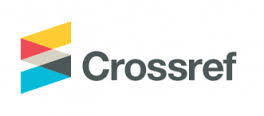The Degree to which Public School Principals in Zarqa Governorate Employ Artificial Intelligence Mechanisms from the Point of View of Principals and Teachers
DOI:
https://doi.org/10.59759/educational.v3i4.810Keywords:
Degree of Employment, Artificial Intelligence Mechanisms, Principals, Teachers, Zarqa GovernorateAbstract
The study aimed to identify the degree to which public school principals in Zarqa Governorate employ artificial intelligence mechanisms from the point of view of principals and teachers. The descriptive survey method was used, and a questionnaire was a data collection tool that was applied to a sample of (413) principals and teachers. The results showed that the degree of public school principals in Zarqa Governorate employing artificial intelligence mechanisms as a whole was to a moderate degree, and that there were statistically significant differences due to the two variables (gender and job title), and were in favor of females and principals. The results also showed that there were statistically significant differences due to the academic qualification variable in favor of those holding a Bachelor’s degree compared to those holding a Master’s degree, and in favor of a Doctorate compared to those holding Master’s degree. There were statistically significant differences for the years of experience variable in favor of those with experience (less than 5 years). The study recommends the need to emphasize increasing the ability of school principals to employ artificial intelligence mechanisms.
Downloads
References
Ayanwale, M. A., Sanusi, I. T., Adelana, O. P., Aruleba, K. D., & Oyelere, S. S. (2022). Teachers’ readiness and intention to teach artificial intelligence in schools. Computers and Education: Artificial Intelligence, 3, 100099.
Baltzersen, R. K. (2022). Cultural-Historical Perspectives On Collective Intelligence. Cambridge University Press.
Chounta, I. A., Bardone, E., Raudsep, A., & Pedaste, M. (2022). Exploring teachers’ perceptions of Artificial Intelligence as a tool to support their practice in Estonian K-12 education. International Journal of Artificial Intelligence in Education, 32(3), 725-755.
Devi, J. S., Sreedhar, M. B., Arulprakash, P., Kazi, K., & Radhakrishnan, R. (2022). A path towards child-centric Artificial Intelligence based Education. International Journal of Early Childhood, 14(03), 2022.
Holmes, W., Bialik, M., & Fadel, C. (2020). Artificial Intelligence in Education. Cambridge University Press.
Kuleto, V., Ilić, M. P., Bucea-Manea-Țoniş, R., Ciocodeică, D. F., Mihălcescu, H., & Mindrescu, V. (2022). The Attitudes of K–12 Schools’ Teachers in Serbia towards the Potential of Artificial Intelligence. Sustainability, 14(14), 8636.
Marasan, R. B. (2021). A Principal’s Leadership Excellence Though Disposition of Attributes. Turkish Journal of Computer and Mathematics Education (TURCOMAT), 12(11), 5360-5371.
Michalski, R. S., Carbonell, J. G., & Mitchell, T. M. (Eds.). (2013). Machine learning: An artificial intelligence approach. Springer Science & Business Media.
Olan, F., Arakpogun, E. O., Suklan, J., Nakpodia, F., Damij, N., & Jayawickrama, U. (2022). Artificial intelligence and knowledge sharing: Contributing factors to organizational performance. Journal of Business Research, 145, 605-615.


